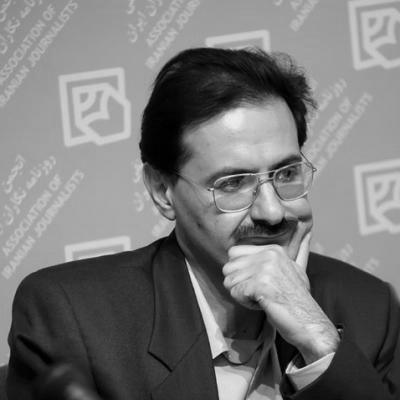
Last Update
June 16, 2020
Organisation
Unknown
Gender
Male
Ethnic Group
Unknown
Religoius Group
Shia
Province
Tehran
Occupation
Journalist
Sentence
7 Years
Status
Released
Institution investigating
Judiciary
Charges
Acting against National Security
Propaganda against the regime
Date of Birth
20/10/1962
Place of Birth
Tehran
Alireza Rajaei Released
“Political prisoners and prisoners of conscience were subjected to assault, beatings and other ill-treatment, with some of those injured denied access to adequate medical care. Prisoners were blindfolded and handcuffed before being shoved through a ‘tunnel’ formed of security officials carrying batons, who repeatedly struck them on their backs, heads and faces.”
He was sentenced to four years in prison and banned from engaging in any political activity for a decade. Rajaei was arrested for a second time on April 24th, 2011 on the basis he had never served his first sentence. On October 26th 2015, Rajaei was released.
Alireza Rajaei was an active journalist in the years following the election in 1997 of reformist President Mohammad Khatami, an era that is now associated with relatively greater press freedoms. In 2000, Rajaei ran as a candidate for the parliamentary elections, campaigning for the Tehran seat as a member of the Nationalist-Religious Coalition (NRC), an opposition coalition of small parties and individuals. He was elected to parliament, but the Guardian Council, the body charged with interpreting the constitution and supervising elections, recounted the votes and disqualified him.
During his first arrest, he was arrested along with several other members of the NRC. The court which sentenced him was presided over by Judge Haddad, one of the judges that human rights groups have accused of “losing their judicial impartiality and overseeing miscarriages of justice in trials in which scores of journalists, lawyers, political activists and members of Iran's ethnic and religious minorities have been condemned to lengthy prison terms, lashes and even execution.” This verdict, like others issued against members of the NRC, was neglected by the appeals court, which neither enforced or revoked the sentences.
Rajaei’s second arrest, which was based on the accusation he hadn’t served his first sentence, took place despite the fact that over 10 years had passed since his initial arrest —exempting him from imprisonment under Iranian law. He was placed in solitary confinement for 58 days before being moved to Section 350 at Evin Prison. His release was scheduled for April 2012, but his sentence was extended by a further four years after he wrote a letter from prison condemning parliamentary elections and saying participation in them was “helping the tyranny.” Following this, Rajaei was again transferred to solitary confinement and he faced harsh interrogations.
On April 17th 2014, he and dozens of other journalists and political prisoners were brutally beaten in Section 350 at Evin Prison. “Political prisoners and prisoners of conscience were subjected to assault, beatings and other ill-treatment, with some of those injured denied access to adequate medical care,” reported Amnesty International. “Prisoners were blindfolded and handcuffed before being shoved through a ‘tunnel’ formed of security officials carrying batons, who repeatedly struck them on their backs, heads and faces.” Rajaei and several other prisoners issued a statement in protest and went on hunger strike. Following an appeal by supporters, they discontinued their strike.
Rajaei was released from Evin Prison on October 26th 2015, after having served his second sentence.
Fellow journalist Siamak Ghaderi has praised Rajaei’s bravery and his work as a journalist.